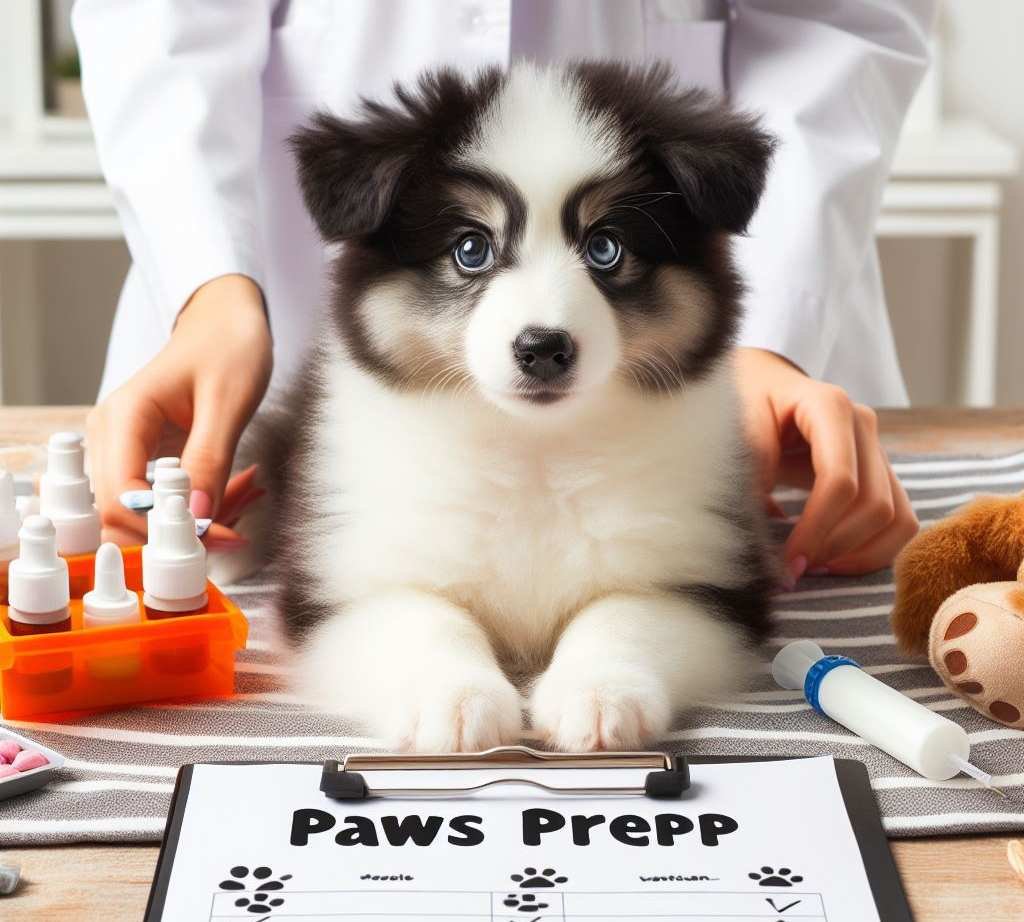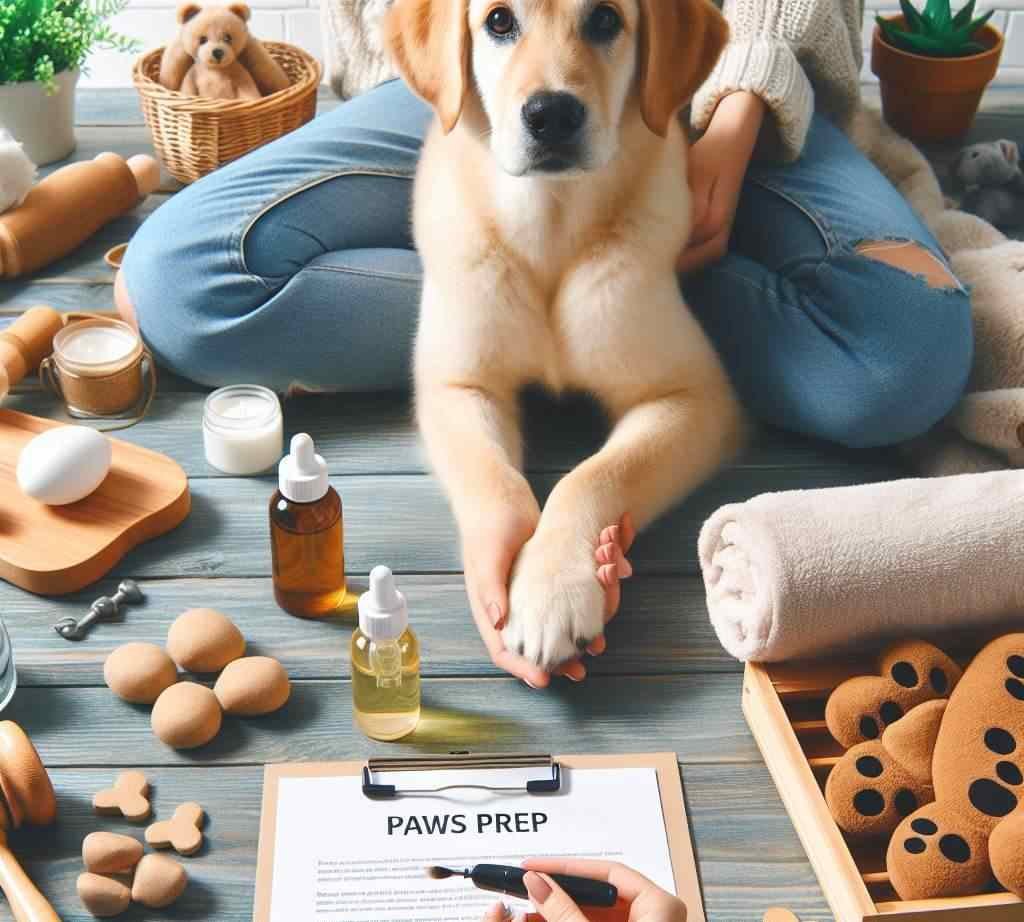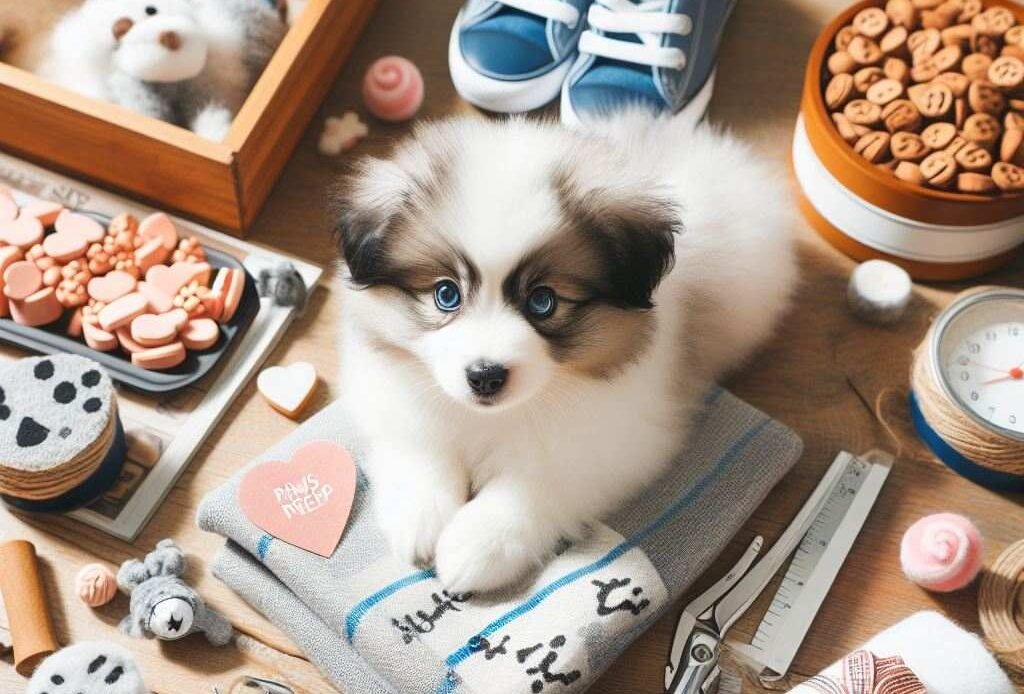Welcoming a new puppy into your home is akin to the arrival of a new family member. It’s an adventure filled with cuddles, playful moments, and inevitable mishaps. As it is, this journey requires preparation, patience, and a lot of love. Whether you’re a first-time pet parent or looking to expand your furry family, this focus will navigate you through the essentials of making your puppy’s transition as smooth as possible.
The Essentials: Setting Up Your Puppy’s New Home

Before your puppy sets a paw inside your home, it’s crucial to have everything they need ready and waiting. This includes a comfortable bed, food and water bowls, high-quality puppy food, chew toys, and a leash and collar. Creating a safe, welcoming space is your first step in this exciting journey. Training supplies like treats and potty training pads will also help ease the transition for you and your new companion. Remember, the goal is to make them feel secure and loved in their new environment from the first day.
A Healthy Start: The Importance of Finding a Vet
One of the most critical steps in your puppy’s first week at home is finding a trusted veterinarian and scheduling an appointment. This initial visit is more than just a formality; it’s a cornerstone of your puppy’s long-term health and well-being. A comprehensive nose-to-tail exam will ensure your new friend is in tip-top shape and catch any potential health issues early on. During this visit, you can also discuss vaccination schedules, spaying or neutering, and get advice on diet and exercise. Establishing a relationship with a vet you trust ensures a solid foundation for your puppy’s health and gives you a go-to expert for any concerns or questions.
Socialization and Training: Building a Well-Rounded Pup
Socialization and training are essential from the get-go. Introducing your puppy to various people, animals, environments, and situations helps them develop into a confident, well-adjusted adult dog. Basic obedience training, like sit, stay, come, and leash manners, lays the foundation for a lifetime of good behaviour. Positive reinforcement, patience, and consistency are critical. Remember, socialization and training are about commands and rules and strengthening the bond between you and your puppy.
Daily Care and Grooming: Keeping Them Happy and Healthy
Proper care and grooming are vital for your puppy’s overall health. Regular brushing, depending on their coat type, keeps their fur looking great and helps prevent matting and skin issues. Routine dental care, trimming their nails, and ear cleaning are also important aspects of grooming that shouldn’t be overlooked. On top of physical care, ensuring your puppy gets enough exercise and mental stimulation will keep them happy and prevent destructive behaviours. A happy puppy is a healthy puppy; part of their happiness comes from keeping your home clean and fur-free.
Creating a Safe Space: Puppy-Proofing Your Home

Puppy-proofing your home is crucial for your new arrival’s safety—and for preserving your belongings. Much like toddlers, puppies are curious by nature and will chew, eat, or play with almost anything within reach. Secure electrical cords, remove toxic plants, and ensure small objects that can be swallowed are out of reach. Pay special attention to creating a safe outdoor space, too. Make sure you puppy-proof the outdoors too! Before your pup is up to date on all their vaccinations, keep their outdoor area small, and when you’re playing outdoors, ensure adequate shade and a cool, comfortable area for them to relax. This attention to detail will provide a safe environment for exploration and play, essential for your puppy’s development.
A Journey of Love and Learning
Bringing a new puppy home is more than a commitment—it’s a journey of love, learning, and companionship. It’s about creating a bond that will last a lifetime through the ups and downs, the cuddles, and the chaos. By preparing your home, finding a great vet, investing in training and socialization, maintaining their health through grooming and care, and puppy-proofing your space, you’re setting the stage for a beautiful life together. Remember, every puppy is unique, and while challenges may arise, the joy and unconditional love they bring into your life are unparalleled. Welcome to the beautiful adventure of puppy parenthood.
Additional Points:
- Puppy-proof your home: In addition to ensuring your home is safe, consider crate training as a safe space for your puppy when you cannot supervise.
- Establish a routine: Puppies thrive on routine, so set a consistent schedule for feeding, potty breaks, playtime, and rest.
- Provide mental stimulation: Puppies need both physical and psychological exercise. Engage them with interactive toys, puzzle feeders, and training sessions.
- Introduce house rules: Establish boundaries and rules from the start, such as where the puppy can go and what furniture they can access.
- Prepare for accidents: Accidents are inevitable during the potty training phase. Have an enzyme-based cleaner on hand to remove odours and discourage future accidents in the same spot.
- Be patient and consistent: Puppies are babies; training takes time and consistency. Celebrate small victories and remain positive throughout the process.
People, Also Searched
How often should I take my puppy out for potty breaks?
- Generally, puppies must go out every 2-3 hours after naps, playtime, and meals. Establishing a consistent schedule will help with potty training.
When should I start socializing my puppy?
- Socialization should begin as early as possible, ideally between 3-12 weeks of age. Expose your puppy to new people, animals, sounds, and environments in a positive and controlled manner.
Is it necessary to crate-train my puppy?
- Crate training is highly recommended as it provides a safe space for your puppy and aids in potty training. However, it should never be used as a punishment or for extended periods.
How often should I groom my puppy?
- Grooming needs vary by breed and coat type, but most puppies benefit from weekly brushing, occasional baths, and regular nail trimming.
What should I do if my puppy is exhibiting destructive behaviour?
- Destructive behaviour is often a sign of boredom, lack of exercise, or improper training. Increase playtime, provide chew toys, and consider enrolling in obedience classes to address the behaviour positively.
Patience, consistency, and a willingness to learn are essential to successfully welcoming and raising a well-adjusted puppy.
